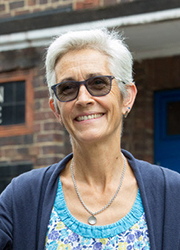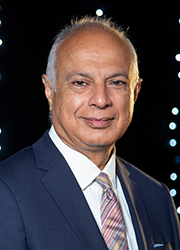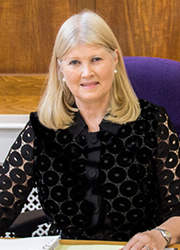
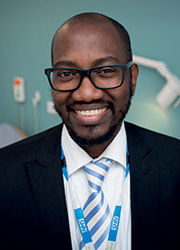
GP Lives: House of Representatives
This article is from the GP Frontline archive and was originally published in September 2022
Anne Connolly is on a mission for parity in women's health
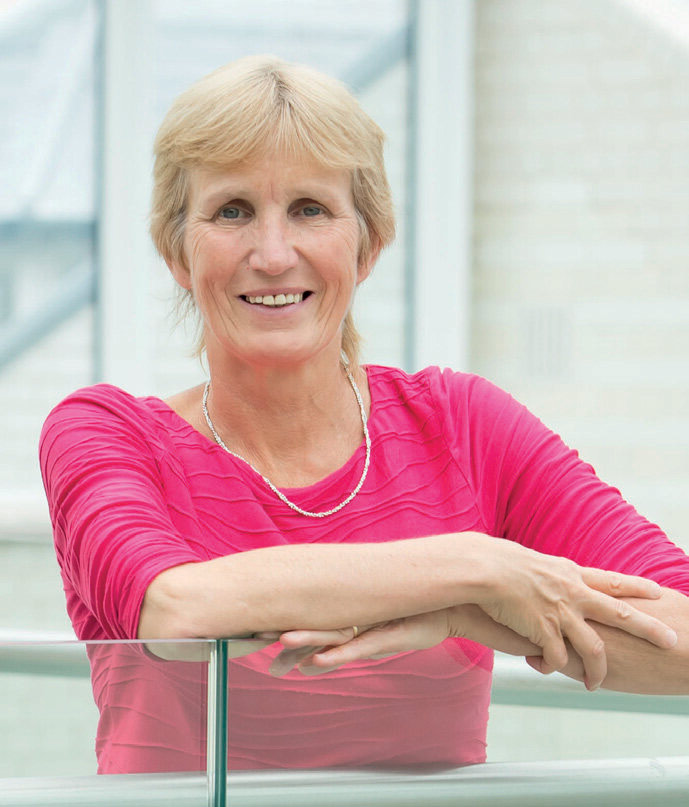
Shortly after qualifying as a GP, Dr Anne Connolly and S her GP husband spent a couple of years working in a hospital in rural Zimbabwe.
Today, as the RCGP rep for Women’s Health, she wants women’s health to have parity with conditions such as diabetes and respiratory disease – and for women to have an individualised, personalised ‘life course’ approach to their care.
“Women spend more than 30 years of their life either wanting to be pregnant or wanting not to be pregnant, but we tend to treat conditions like endometriosis, polycystic ovary syndrome and early menopause ‘on the day’ rather than as the long-term conditions they are and it’s easy to miss the bigger picture. Much of this is about earlier intervention and prevention and if we could spend more time with patients, we would reduce a lot of the consequences of unmanaged concerns and when things go wrong,” she says.
Anne was a key contributor to the College’s response to the Government’s new Women’s Health Strategy, overall based on 110,000 consultation responses.
“Apparently only 0.5% of respondents to the survey were from the north and Midlands and only 7% from nonwhite backgrounds. There has to be a real effort to make sure that, whatever the future expectations from the women’s health work, the focus is on making sure that all women are heard,” she says.
She strongly believes that the solutions to improving diagnosis, standards and availability of treatment for women’s gynaecological health lie in holistic primary care – but that frequent calls by charities for additional mandatory GP training in areas like menopause are not the answer.
“Women’s health care is part of our initial and ongoing training as GPs and providing relevant education has been a priority for the RCGP,” she explains.
The key, she says, is getting the right funding in the right places so women aren’t pushed from pillar to post when seeking treatment: “It used to be much easier for women to get quality holistic care from their local GP whereas now we’ve got to refer here or there, or they get bounced from the sexual health clinic to the hospital, dependent on whether the method requested is for contraceptive or gynaecological reasons.
“The care is very fragmented and women who can’t navigate the hurdles are hit hardest. If women have cultural or social issues, they don’t have the wherewithal to get around the system.”
Anne says her career has been based on seizing opportunities, rather than a grand plan.
While raising her four children, she and her husband job-shared a GP partnership in a large teaching practice in Bradford and as the daily parental needs changed, she started taking on more women’s health issues and contraception clinics.
She got involved with what was then the College’s Sex, Drugs and HIV group and this led to chairing the popular One Day Essentials courses on women’s health and sexual health.
After qualifying with a post-graduate diploma in GPSI gynaecology from Bradford University, she was one of the co-founders of the multi-disciplinary Primary Care Women’s Health Forum. She was also Vice President (membership) of the Faculty of Sexual and Reproductive Health (FSRH) from 2017-19. She is particularly proud of the collaborative work with the Royal College of Obstetricians and Gynaecologists, FSRH and others to create the ‘one stop’ Women’s Health Library resources.
In 2017 Anne left her GP partnership to take on a part-time salaried role in inner city Bradford and was awarded an MBE for her work in women’s health in 2021.
She has nothing but praise for the profession in the current debate around HRT.
“GPs have done brilliantly, even though we’re still getting slated for it. GPs have been inundated with menopause requests and they are responding brilliantly.
“It’s good to see that women are more aware of their symptoms and talking openly about HRT or getting better support in the workplace, but unfortunately, some of the media expectations are unrealistic and some women think that HRT is a panacea for all their ills.”
The College is still in ongoing discussions about particular recommendations in the Women’s Health Strategy, but Anne is optimistic that things are going to improve.
“Women’s health is no longer sidelined. We’ve got the political will, we’ve got passion amongst clinicians, we’ve got recognition that there hasn’t been enough research done on women-specific issues – and we’ve got women themselves refusing to accept this anymore,” she says.
“All the ducks are lined up – this is the time and we can’t miss the opportunity.”
To find out more about becoming a College rep, like Anne, and use your clinical experience to help shape the future of general practice email collegereps@rcgp.org.uk.
Read more
Thank you for your feedback. Your response will help improve this page.

